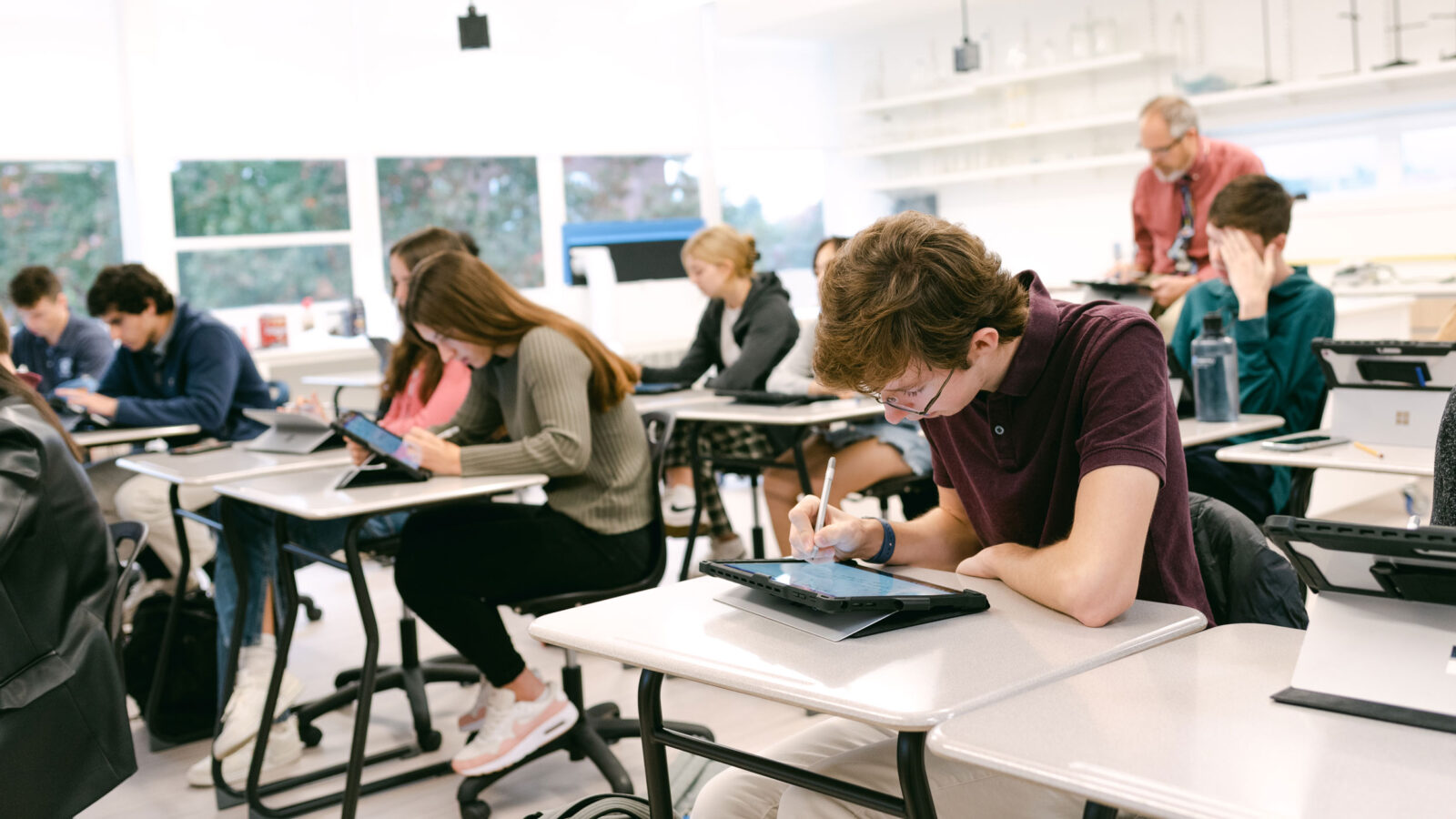This year, Williston’s Center for Academic Success turns 5! Here are some of the ways this innovative center is helping students thrive and reach their full academic potential.
Five years ago, Williston set out on an ambitious course to support students by launching the Center for Academic Success—or CAS. Housed in Clapp Memorial Library, the CAS has become one of the busiest spots on campus, offering a true constellation of resources for every kind of learner. Offerings range from structured programs—such as the Academic Strategies Tutorial and supported evening study hall—to the more informal drop-in centers for math, science, and writing, located upstairs.
“I love seeing the growth” says Laura Vachet, Williston’s Director of Academic Support. “The number of students coming in to get help has increased. Some do it for a little while; some take courses all the way through until they graduate. In general, it feels like students see us as a place to go for help, and that’s a huge accomplishment.” To give further insight on just what CAS does, we asked Vachet to share some of its core components.
The Center for Academic Success
Located in the lower floor of Clapp Memorial Library, the CAS space is home to two classrooms and two private meeting spaces where students can get one-on-one tutoring. Three CAS teachers staff the center—Vachet, along with Learning Specialists Jessica Tabb Wood and Jayde Dawson-Gordon—and there are six other tutors available as needed in different subjects and specialties. “What I love most about the CAS space is that it’s completely open to every student in the school,” Vachet says. “We have middle schoolers getting help in the basics, all the way through postgraduate students who want to prep for college.”
Math, English, and Science Centers
Need a little help with a calculus problem or your English paper? Stop in to the library, where you’ll find dedicated rooms for math and science on the first floor and writing on the second floor. Staffed by teachers and student-tutors during the day and evening study halls, these rooms allow students to drop in and ask questions about challenging topics. Started in 2006, the writing center has been a go-to resource for legions of students, with more than 1,000 visits per year!
Academic Strategies Tutorial
The Academic Strategies Tutorial is a trimester-long class in executive functions that meets twice a week. Students gather in small groups with a CAS staffer to learn strategies to promote academic success by developing skills in note taking, reading comprehension, essay preparation, time management, and a host of other important learning topics. For Vachet, who is one of the course instructors, it can be incredibly rewarding. “I absolutely love when I get a handful of students who have low confidence in their skills,” she says, “but then they start to buy in and realize these simple tools can really help them. Hands down, the best part of my job.”
Academic Accommodations
For students with diagnostic reports or neuropsychological testing, Vachet reviews the documentation and drafts an accommodations plan in collaboration with each student’s family. The document is shared with teachers, and helps to provide appropriate educational accommodations, including extended time and separate space as needed for testing, and use of a computer for writing.
“The attention to individual needs allows students every opportunity to do their best and to achieve their best,” Vachet says. “That means we’re opening up greater opportunities for when they leave Williston—both where can they go and what they can do. Sometimes it’s just a matter of minimal support that can make a huge difference in a student’s confidence and success.”
Opportunities for Middle Schoolers
When CAS first opened, the focus was on the Upper School, but in recent years it has expanded to include support for seventh and eighth graders, too. Middle School students’ schedules now incorporate proctored study halls and the Academic Strategies courses, along with options for tutoring sessions and homework help—something that can be very helpful for students preparing for high school.
“We knew they could use the help to develop academic skills,” Vachet says. “So we worked hard to make sure Middle Schoolers can opt to have that support built into their schedule. It’s great to see.”

